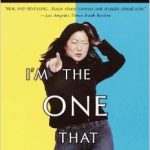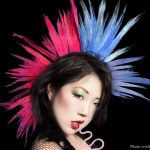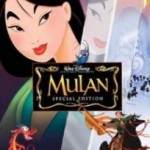 By Jae-Ha Kim
By Jae-Ha Kim
Chicago Sun-Times
November 6, 1994
I don’t necessarily love her semi-autobiographical show “All-American Girl” yet, but I relate to Margaret Cho, the star of ABC’s new comedy. Cho is Korean-American. I am Korean-American. She is the antithesis of the ideal Asian woman (geisha girl). No one would mistake me for Suzy Wong. She snorts when she laughs. I snort when I laugh. She’s big (chubby). I’m big (tall). Once, a Korean friend’s father helpfully advised me to “stop growing” if I wanted to land a husband. She’s not a doctor, but a comedian. I’m not a doctor, but a journalist – kind of like a comedian. Cho dates losers. When I date, they’re usually losers. She’s 25. I’m . . . well, never mind.
I don’t relate to Cho’s character, Margaret Kim. When the series premiered, many of my friends wanted to know what I thought about the program. At that point, not much. Because the supporting cast is strong, it didn’t really bother me that none of the actors portraying Cho’s family members is of Korean descent. What annoyed me, though, was that the poorly written debut wasn’t funny and I, with nationalistic pride, worried that people would think it was true that Asians had no sense of humor.
If you had ever heard my father explain why people with large heads (like me) are smarter than pinheads, you’d know that stereotype isn’t true at all.
Nonetheless, I was relieved when subsequent episodes of “All-American Girl” were more fleshed out, funnier and featured no one who owned a dry cleaning business.
Kim is a 22-year-old college grad who works at a department store perfume counter and lives at home with her parents, grandmother and two brothers (one of whom is a cardiologist). She blames her parents’ strictness on their being Korean immigrants, when the real reason they worry about her so much is that she’s a petulant brat who threatens to do stupid things (like move in with her monosyllabic biker boyfriend when her mother tries to set her up with a Korean man).
When she pouts or storms out of a room, her parents always shake their heads and mumble about her in unintentionally hilarious Korean that only the actors on “MASH” could appreciate.
Cho isn’t the first Korean comedian to hit the mainstream. Johnny Yune made a stab at films, and Henry Cho (no relation) appears regularly on the club and talk-show circuit. But Margaret Cho is the first Korean entertainer to get such a high-profile program, and that kind of power also bears with it expectations she may not be ready for. There’s a lot of weight on her shoulders to represent her people in a politically correct way. But PC isn’t necessarily funny. And comedy has always been about stretching the boundaries of good taste.
Like many stand-ups, Cho isn’t a good enough actress yet to carry a poorly written show. She’s likable, but not very skilled. She mugs and vacillates her way through scenes to cover up for the fact that she is acting challenged. B.D. Wong – the best actor in the troupe – has the thankless bit role of playing her obsequious doctor brother. So far, his character is the stereotypical neutered Asian male Hollywood so often embodies in film. Only her grandmother, whom critics have unanimously trashed, is a refreshing change of pace. I’d like to introduce her to my old-fashioned grandfather, who believes that women’s limbs shouldn’t be bared in the summer. Now there’s a plot.
As a comic, Cho has some inspired moments in her stand-up routines when she relates to the predominantly white audience what it’s like being a young American woman who’s never quite perceived as truly being an American. I understand. When I was a graduate student at Northwestern, one of my teachers actually asked me why Asians couldn’t pronounce “r” or “l” sounds. She didn’t get it when I perfectly enunciated, “I really, really don’t know.”
Cho may never beat out Heather Locklear for a TV movie of the week, but she’s a welcome dose of ethnic reality that isn’t nearly visible enough in the mass media.
I hope her show does well.
I really, really do.





